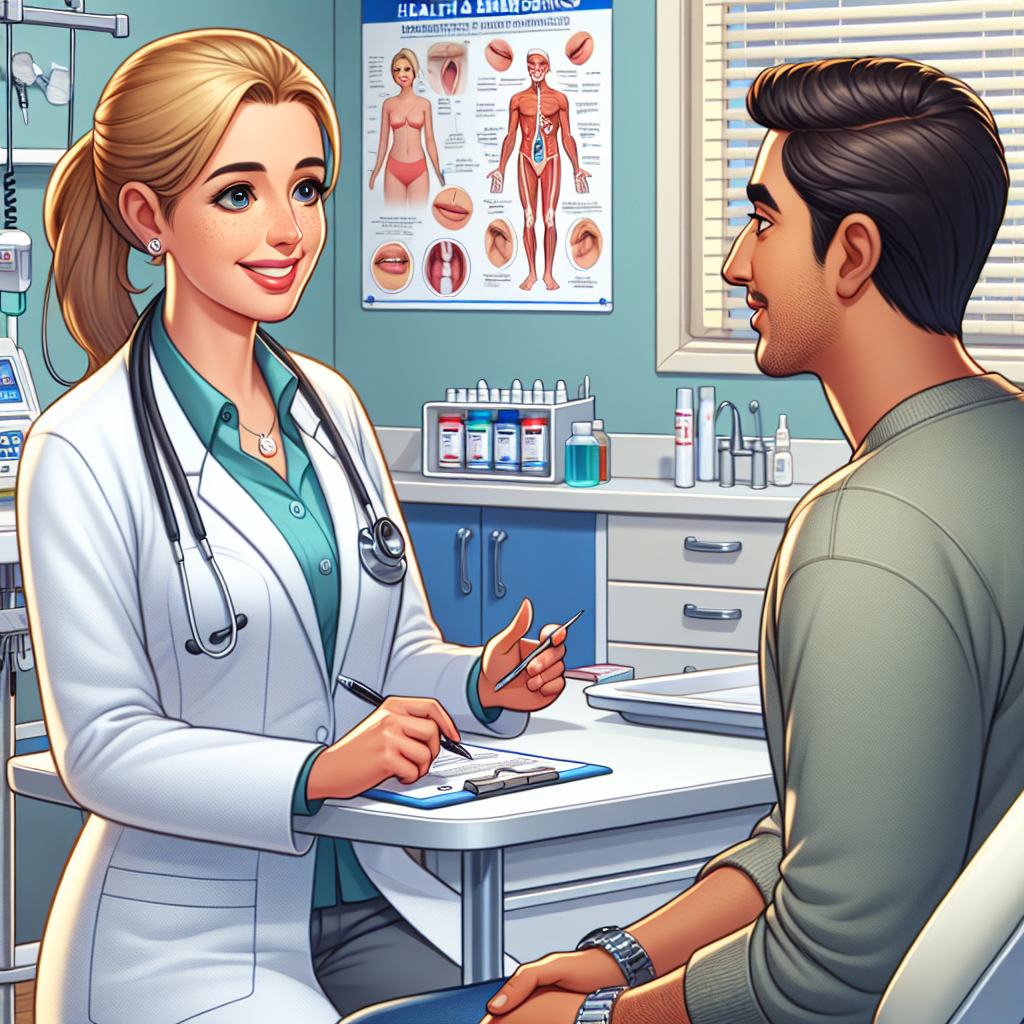Ristoranti e Cibo

Imparare a comunicare efficacemente in inglese durante una visita medica o odontoiatrica è una competenza essenziale per chiunque voglia utilizzare l'inglese nella vita quotidiana. Questo articolo ti guiderà attraverso vari scenari di roleplay presso l'ufficio del medico e del dentista, fornendoti strumenti pratici per affrontare questi incontri con sicurezza. Scoprirai un vocabolario utile, frasi chiave e dialoghi realistici che ti aiuteranno a migliorare il tuo inglese per le visite mediche e ad affrontare le situazioni di salute con maggiore fiducia. Attraverso questi esercizi di roleplay dal dentista o dal medico, non solo amplierai il tuo repertorio linguistico, ma svilupperai anche competenze pratiche per interagire in modo naturale e sicuro.

Imparare a comunicare efficacemente in inglese durante una visita medica o odontoiatrica è una competenza essenziale per chiunque voglia utilizzare l'inglese nella vita quotidiana. Questo articolo ti guiderà attraverso vari scenari di roleplay presso l'ufficio del medico e del dentista, fornendoti strumenti pratici per affrontare questi incontri con sicurezza. Scoprirai un vocabolario utile, frasi chiave e dialoghi realistici che ti aiuteranno a migliorare il tuo inglese per le visite mediche e ad affrontare le situazioni di salute con maggiore fiducia. Attraverso questi esercizi di roleplay dal dentista o dal medico, non solo amplierai il tuo repertorio linguistico, ma svilupperai anche competenze pratiche per interagire in modo naturale e sicuro.
 Indice dei contenuti
Indice dei contenuti
Impara queste parole e frasi essenziali per parlare con sicurezza
appointment
prescription
check-up
symptom
diagnosis
treatment
filling
Appuntamento
Ricetta medica.
controllo medico
Sintomo
Diagnosi
trattamento
Ripieno.
Ecco alcune frasi comuni che potresti sentire o usare:
I have an appointment at 10 a.m.
What seems to be the problem?
I'm feeling under the weather.
Do you have any allergies?
You need a prescription.
I have a toothache.
Let's schedule a follow-up appointment.
Ho un appuntamento alle 10 di mattina.
Qual è il problema?
Non mi sento bene.
Hai allergie?
Hai bisogno di una ricetta medica.
Ho mal di denti.
Fissiamo un appuntamento di follow-up.
con l’IA di LingUp — parla in modo naturale e ricevi feedback immediato.
Complete these sentences using the correct word or phrase.
Punctuality(Punctuality): Arrive at least 10 minutes early for your appointment to respect the doctor's schedule.
Direct Communication(Direct Communication): Be clear and specific when describing symptoms or concerns to help the doctor provide the best care.
Politeness(Politeness): Use polite language such as 'please' and 'thank you', and address the doctor as 'Doctor' followed by their last name.
Puntualità(Punctuality): Arriva almeno 10 minuti in anticipo al tuo appuntamento per rispettare l'orario del medico.
Comunicazione diretta(Direct Communication): Sii chiaro e specifico quando descrivi i sintomi o le preoccupazioni per aiutare il medico a fornire la migliore assistenza.
Cortesia(Politeness): Usa un linguaggio cortese, come 'per favore' e 'grazie', e rivolgiti al medico chiamandolo 'Dottore' seguito dal suo cognome.
In questo articolo, hai rafforzato la tua capacità di comunicare in inglese esplorando dialoghi e vocabolario rilevanti per visite dal medico o dal dentista. Questi scenari sono progettati per dotarti della fiducia necessaria per affrontare visite mediche e dentistiche nella vita reale. Con questa base, sei ora meglio preparato ad applicare le tue competenze linguistiche in inglese in contesti essenziali legati alla salute. Continua a esplorare altri temi di roleplay per migliorare ulteriormente la tua abilità di comunicazione.
Imparare a descrivere i sintomi in inglese è fondamentale quando si viaggia o si vive in un paese anglofono. Che si tratti di spiegare i propri sintomi a un medico o di descriverli a un amico, saper comunicare chiaramente può fare la differenza. In questo articolo, esploreremo il vocabolario utile e le frasi chiave che possono aiutarti a gestire le conversazioni sui sintomi in inglese. Con esempi pratici e dialoghi realistici, avrai la possibilità di migliorare le tue competenze linguistiche e sentirti più sicuro nelle situazioni della vita reale. Continua a leggere per scoprire esercizi in inglese che renderanno queste conversazioni più gestibili.
In caso di emergenza, una comunicazione chiara e rapida può fare la differenza. Questo articolo è pensato per aiutarti a praticare le chiamate di emergenza in inglese, fornendoti strumenti linguistici essenziali per gestire situazioni difficili. Attraverso esercizi di conversazione per emergenze in inglese, familiarizzerai con il vocabolario e le frasi chiave necessarie per simulare chiamate di emergenza efficaci. Scopri quali ruoli assumere e come comunicare con sicurezza durante un'emergenza, imparando l'inglese con conversazioni appositamente studiate per aumentare la tua prontezza linguistica in situazioni critiche. Continua a leggere per approfondire le tue competenze linguistiche in contesti vitali.
Quando si tratta di gestire le richieste di assicurazione sanitaria, una comunicazione efficace è fondamentale. In questo blog esploreremo dialoghi realistici e forniremo una serie di esercizi sulle richieste di assicurazione in inglese per aiutarvi a migliorare le vostre competenze linguistiche. Attraverso l'uso di simulazioni di conversazioni sull'assicurazione in inglese, potrete praticare l'assicurazione sanitaria in inglese e sentirvi più sicuri in situazioni reali. Preparatevi a immergervi nei dialoghi in inglese sull'assicurazione sanitaria e a sviluppare la padronanza del vocabolario essenziale e delle frasi chiave.

Leave a Reply
Your email address will not be published.
Comments